Outputs
Below is a collection of Nature-based Solutions Initiative outputs from our team or closely related partners. For academic papers solely on Nature-based Solutions see our bibliography.
76 results found
-
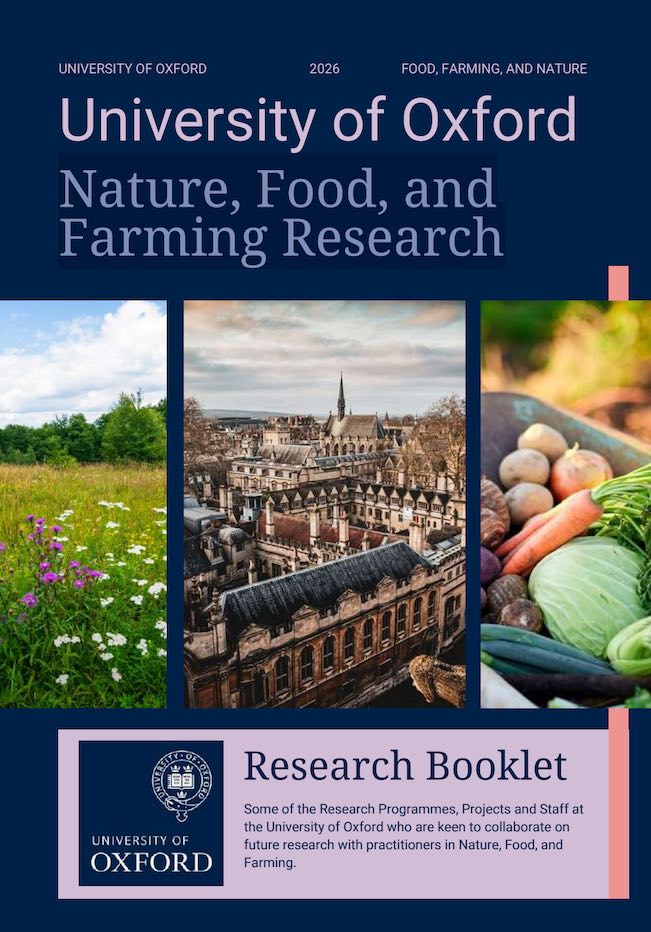
Nature, Food, and Farming Research
February 2026Co-created by AGRIIH and Agile, this catalogue brings together a wide range of programmes, projects, and researchers across the University of Oxford whose work engages with key challenges in food, farming, and nature. It has been developed to support new conversations, connections, and collaborations between practitioners, policymakers, researchers, and organisations working across sustainable food, farming, land stewardship and rural futures.
Report/Brief -
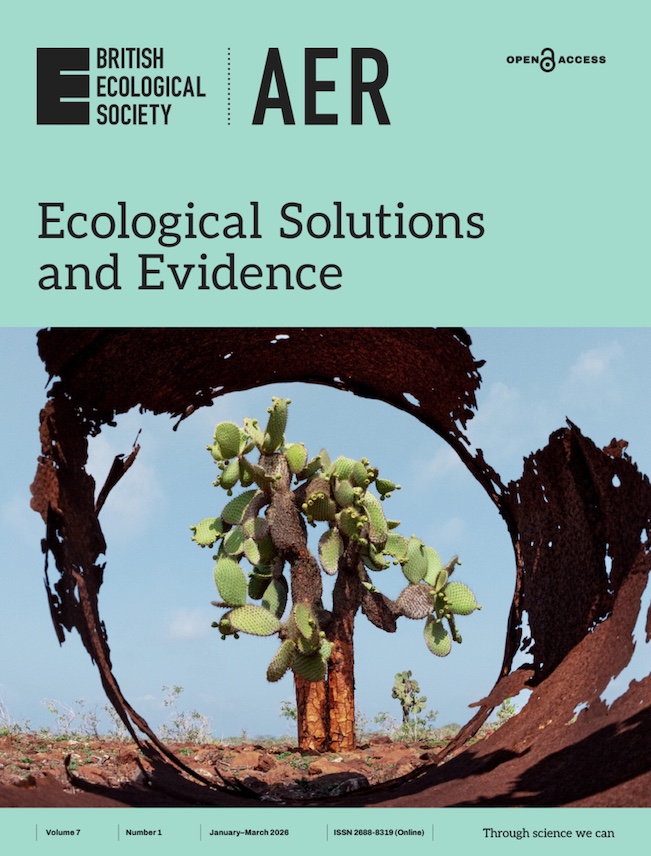
Addressing the challenges of managing and monitoring biodiversity in High Conservation Value areas and High Carbon Stock forests within oil palm landscapes
February 2026Protecting areas of natural habitat is an approach that is used to help conserve biodiversity in oil palm plantations. Their size and location affect the biodiversity of these sites and the management of sites is vital for ensuring their natural ecosystems remain in good condition and for maintaining forest canopy cover.
Academic Publication -

The AGRIIH Showcase
February 2026The AGRIIH Showcase brings together interdisciplinary research and dialogue at University of Oxford around agricultural resilience, exploring how research, practice, and collaboration can address challenges across nature, food, and farming systems. The exhibition highlights key themes including working with nature, technology and innovation, governance and values, and co-creating resilient futures. Explore the exhibition panels to learn more about the questions, approaches, and research areas featured at the Showcase.
Recording/Slides -
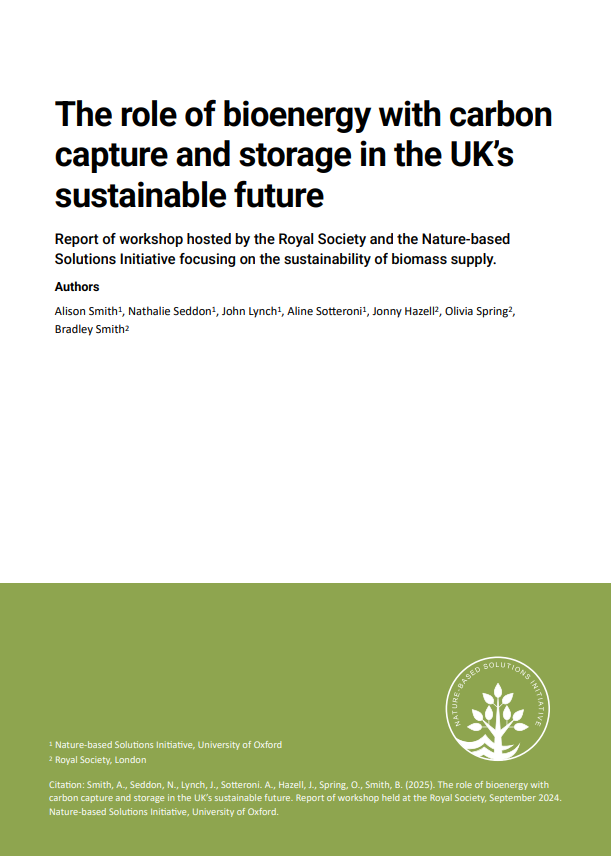
The role of bioenergy with carbon capture and storage in the UK’s sustainable future
December 2025Report of workshop hosted by the Royal Society and the Nature-based Solutions Initiative focusing on the sustainability of biomass supply.
Report/Brief -
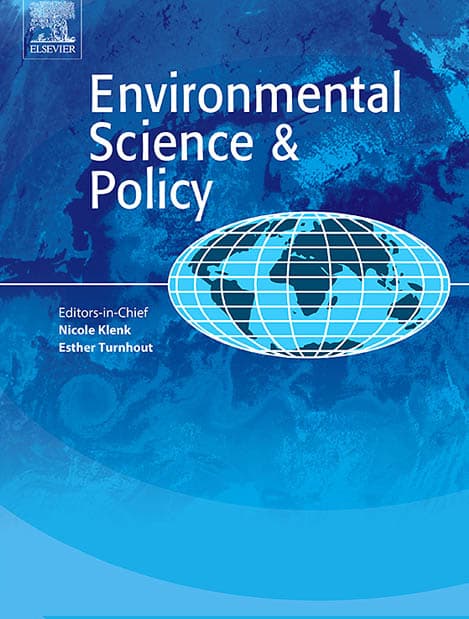
Assessing potential implications of the EU’s carbon dioxide removal strategy on Brazil’s land ecosystems and local communities
August 2025Here we recommend a set of integrated and participatory policy approaches that prioritise procedural justice, ensure transparent international cooperation, and mitigate the unintended impacts of global CDR strategies on vulnerable ecosystems and communities.
Academic Publication -
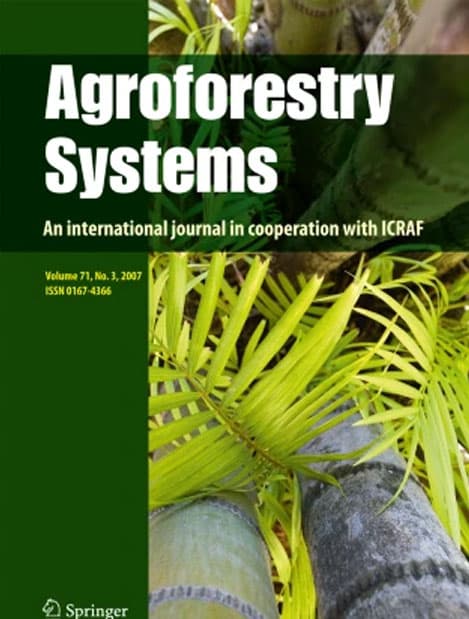
Understanding the diverse values of shade trees on cocoa farms in Ekiti State, Nigeria
August 2025This study investigates the values that underpin cocoa farmers' decisions around shade tree retention in Ekiti State by analysing tree species composition, density, and basal area alongside farmer perspectives using content and thematic analysis, across fifteen farms in Ekiti State
Academic Publication -

Landscape Analysis for an Agricultural Resilience Impact and Innovation Hub (AGRIIH) at Oxford
June 2025Oxford University has a vision for an Agricultural Resilience Impact and Innovation Hub (AGRIIH) to link its own agriculture-related research, connected disciplines, and form external partnerships to increase impact and innovation, resulting in greater resilience in agriculture in the UK and globally.
Report/Brief -

Introducing The Agricultural Resilience Impact and Innovation Hub
June 2025Oxford is developing a new interdisciplinary initiative: the Agricultural Resilience Impact and Innovation Hub (AGRIIH). AGRIIH will act as a catalyst for agricultural resilience research and innovation at Oxford—bringing together diverse disciplines, external partners, and global stakeholders to drive practical, system-informed solutions.
Guide -
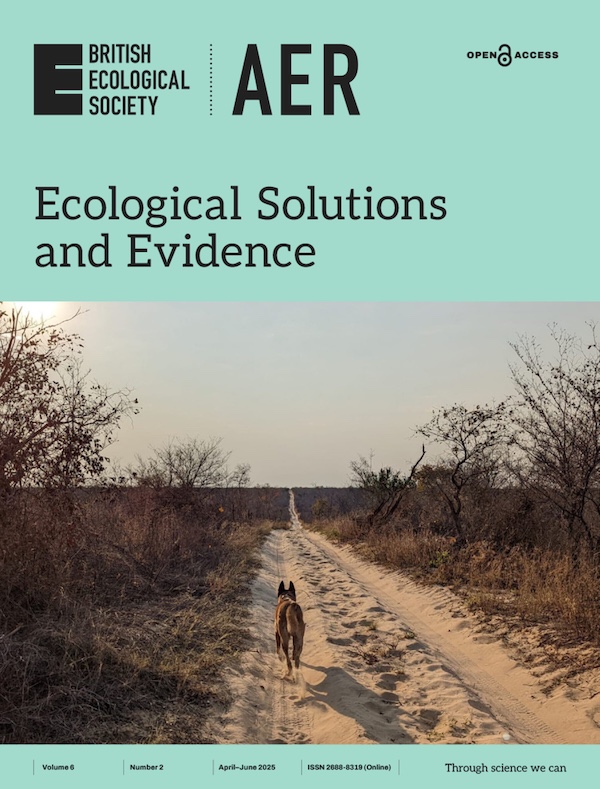
Integrated above- and below-ground ecological monitoring for nature-based solutions
May 2025Our study provides practitioners with a framework for selecting optimum metrics for assessing above- and below-ground ecological outcomes of NbS relevant to the location in which they are being implemented
Academic Publication -

A menu of standards for green infrastructure in England: effective and equitable or a race to the bottom?
January 2025This paper draws on original research into the design of a menu of GI standards for England, commissioned by Natural England—a United Kingdom Government agency. It describes the evolution of the standards within the context of United Kingdom government policy initiatives for nature and climate.
Academic Publication -

Tree Diversity Increases Carbon Stocks and Fluxes Above—But Not Belowground in a Tropical Forest Experiment
January 2025We show that tree diversity significantly increased aboveground C stocks and fluxes, with a 57% higher gain in aboveground tree C in five-species mixtures compared to monocultures 16 years after planting.
Academic Publication -

Is the Implementation of Cocoa Companies’ Forest Policies on Track to Effectively and Equitably Address Deforestation in West Africa?
January 2025This study examines the design and implementation of forest-focused supply chainpolicies (FSPs) in cocoa supply chains in Côte d'Ivoire and Ghana, the world's two leading cocoa producers.
Academic Publication -

Unpacking the politics of Nature-based Solutions governance: Making space for transformative change
January 2025Participatory governance is touted as a driver of transformative change, but often falls short of its promises. Dominant framings can reinforce vested interests and marginalise alternative perspectives. Technoscientific and market-oriented approaches, risk and uncertainty, and “democracy washing” shape transformative NbS.
Academic Publication -

Advancing nature-based solutions through enhanced soil health monitoring in the United Kingdom
November 2024This paper examines challenges and opportunities in selecting suitable soil health metrics. We find that standardization can facilitate widespread monitoring of soil health with benefits for stakeholders and user groups
Academic Publication -

Harnessing Nature-based Solutions For Economic Recovery
November 2024This policy briefing outlines the key role of nature-based solutions (NbS) in supporting sustainable economic recovery and societal resilience.
Report/Brief -

A Review of Life Cycle Assessment Methods to Inform the Scale-Up of Carbon Dioxide Removal Interventions
November 2024A new paper, led by Dr Isabela Butnar of UCL and NbSI’s Dr John Lynch, argues that we currently have only limited evidence to address these important questions.
Academic Publication -

Growing Positive Change – NbS Conference Report
October 2024We are delighted to announce the release of our NbS Conference 2024 Report and Recordings, highlighting critical actions for aligning climate and biodiversity agendas to support social-ecological flourishing.
Report/Brief -

Harnessing nature-based solutions for economic recovery: A systematic review
October 2024A systematic review of 66 reviews on the economic impact of nature-based interventions. Nature-based solutions (NbS) involve working with nature to address societal challenges in ways that benefit communities and biodiversity locally. However, their role supporting economic recovery from crises, such as those arising from conflicts or pandemics remains underexplored.
Academic Publication -

Integrated modeling of nature’s role in human well-being: A research agenda
September 2024We identify five research frontiers for integrated social-economic-ecological modeling (primarily focused on terrestrial systems) to incorporate biodiversity and ecosystem services: 1) downscaling impacts of direct and indirect drivers on ecosystems; 2) incorporating feedbacks in ecosystems; 3) linking ecological impacts to human well-being, 4) disaggregating outcomes for distributional equity considerations, and 5) incorporating dynamic feedbacks of ecosystem services on the social-economic system.
Academic Publication -

A Review of Life Cycle Assessment Methods to Inform the Scale-Up of Carbon Dioxide Removal Interventions
August 2024This article critically reviews CDR LCA case-studies through three key lenses relevant to policy decision-making on sustainable CDR scale-up, namely comparability across CDR assessments, assessment of the climatic merit of a CDR intervention, and consideration of wider CDR co-benefits and impacts.
Academic Publication -

Using policy scenarios to assess challenges and opportunities for reaching restoration targets in Brazil’s Atlantic Forest
June 2024In this study we simulate the impacts of alternative restoration policies addressing targets for Brazil, and explore their impacts on selected terrestrial species and agricultural development potential in the Atlantic Forest biome.
Academic Publication -

Does ‘net zero’ mean zero cows?
May 2024A significant share of anthropogenic global warming comes from livestock production. There is debate about whether there can be any role for livestock in a climatically sustainable future; the debate is particularly heated for cows and sheep, largely due to the methane they burp out.
Academic Publication -

A restatement of the natural science evidence base concerning grassland management, grazing livestock and soil carbon storage
January 2024This paper describes a project that set out to summarise the natural science evidence base relevant to grassland management, grazing livestock and soil carbon storage potential in as policy-neutral terms as possible.
Academic Publication -

Considering the Cross-Boundary Environmental and Social Implications of the EU’s Carbon Dioxide Removal Strategy in Brazil
January 2024This book is a core output from the Horizon Europe project SSH CENTRE: Social Sciences and Humanities for Climate, Energy and Trans- port Research Excellence that includes findings from novel interdisciplinary collaborations which were catalysed and funded by the project.
Report/Brief














